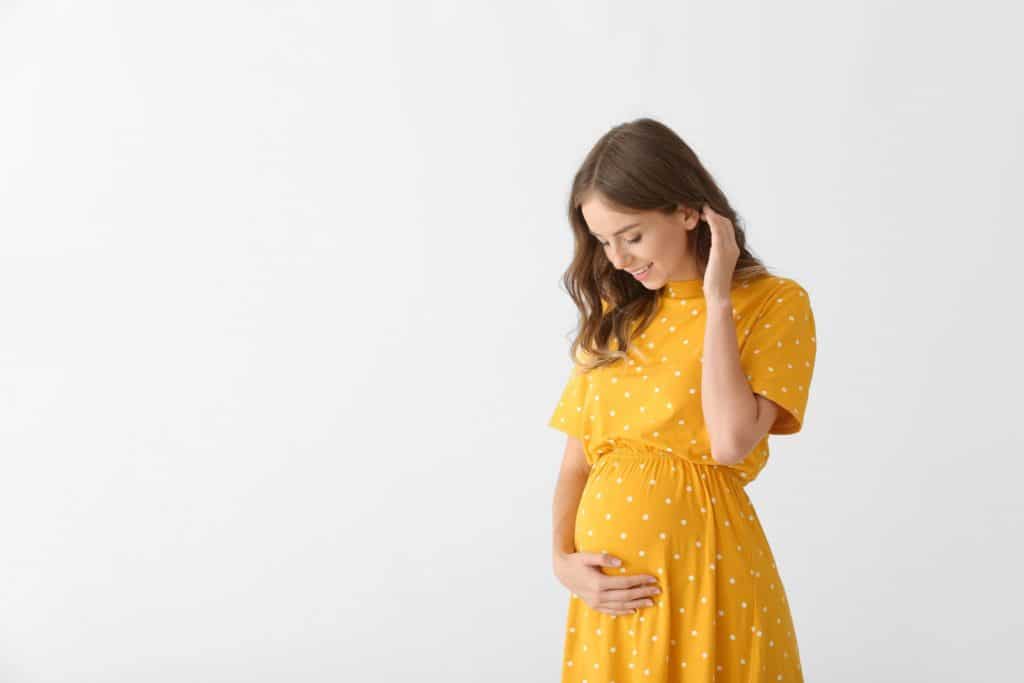Pregnancy is an amazing 40-week journey that is divided into three trimesters, each about three months long.
The clock starts on the first day of your last menstrual period even though conception hasn’t even occurred yet. That happens about two weeks later when you ovulate and the egg is fertilized.
Stages of Pregnancy
The process of baby development begins as the fertilized egg implants onto your uterine wall and the embryo starts growing. Conception causes the release of a hormone called human chorionic gonadotrophin (hCG), which can be detected by home pregnancy tests around three to four weeks from the first day of your last period. At conception, the baby’s complete genetic makeup and sex are already determined.
- First trimester (weeks 1-12)
- Second trimester (weeks 13-27)
- Third trimester (weeks 28-40)

You
Pregnancy brings profound changes to your body. There are immediate changes in the levels of several hormones producing symptoms that include:
- acne
- constipation
- fatigue
- food cravings or distaste for certain foods
- headaches
- heartburn
- increased urge to urinate
- mood swings
- morning sickness characterized by nausea and vomiting
- skin and hair changes
- tender, swollen breasts
- weight changes
To alleviate some of these symptoms, you might need to change your daily activities. Try going to bed earlier and eat smaller meals more frequently. Fortunately, some of these symptoms will go away as you enter your second trimester.
Your Baby
The first trimester is the most sensitive time for a baby’s development. Up to the eighth week of pregnancy, your developing baby is called an embryo. From that time on until birth, your developing baby is called a fetus.
At the end of the first month, your baby is about the size of a pea but her arms, legs, and vital organs like her heart, lungs, and brain have started to form. Her face develops with large dark circles for eyes. At about six weeks, your baby's heartbeat can be detected.
By the end of the second month, fingers, wrists, ankles, and genitals begin to form and your baby grows to the size of a kidney bean. The digestive tract and sensory organs also begin to develop.
In the third month, bones and muscles start growing. By the end of the third month, all organs and extremities are present.
You
By the second trimester, your body has generally adjusted to hormonal changes and many symptoms of early pregnancy like nausea and fatigue diminish or disappear. Your chances of miscarriage also drop significantly. However, some new symptoms may appear:
- a line from your belly button to pubic hairline may become visible
- belly itch due to skin tightening
- darkening or enlargement of the areolas
- more pelvic pressure and experience backaches
- darker patches of skin on the face
- stretch marks
- swelling of the ankles, finger, and face
For help with backaches, download How to Reduce Back Pain in Pregnancy
Your Baby
In the fourth month of pregnancy, your baby's heartbeat may be audible with a doppler. Her fingers and toes become defined and eyelids, eyebrows, eyelashes, nails, and hair are formed. Your baby can suck her thumb, yawn, stretch, and make faces.
In the fifth month, your baby becomes more active and you may be able to feel her movements.
By week 14, your baby may start to breathe. After 18 weeks, an ultrasound can reveal your baby’s gender and she may even develop a regular sleep/wake cycle. By the end of the sixth month, your baby is about 12 inches long and weighs about 2 pounds. After week 23, your baby may survive with intensive care, if born prematurely.
You
During the third trimester, you might experience the following:
- breasts may start leaking as they prepare for breastfeeding
- increased pressure on the bladder increases your urge to urinate
- retention of fluids causes swollen extremities
- shortness of breath because your lungs have less room to expand
- trouble sleeping due to your growing baby bump
- varicose veins may make an unwelcome appearance
You may also experience painless, irregular contractions, called Braxton-Hicks contractions, or false labor, which is the result of the tightening of the uterus.
In the ninth month, you may experience a vaginal discharge containing mucus and a bit of blood, called the bloody show, which may increase signifying the very beginning of labor. While these last weeks may be the most uncomfortable period, your will feel excited for what is soon to come!
Your Baby
By the seventh month of pregnancy, your baby can open and close her eyes, change positions, and respond to light and sound. At the end of the seventh month, your baby is about 14 inches long and weighs 2 to 4 pounds.
During the eighth month of pregnancy, your baby will gain weight quickly and her brain will develop rapidly. In the ninth month, your baby’s reflexes become coordinated and lungs become fully formed. She gets ready for birth by turning into a head-down position in your pelvis. This is called lightening. After your baby drops down to this position, birth can occur at any time.
References:
Heartfelt Care Starts Here
The birth of your baby is one of the most memorable, life-changing, and exciting experiences of your life. Schedule an appointment today to learn about the heartfelt care we provide during your journey.
